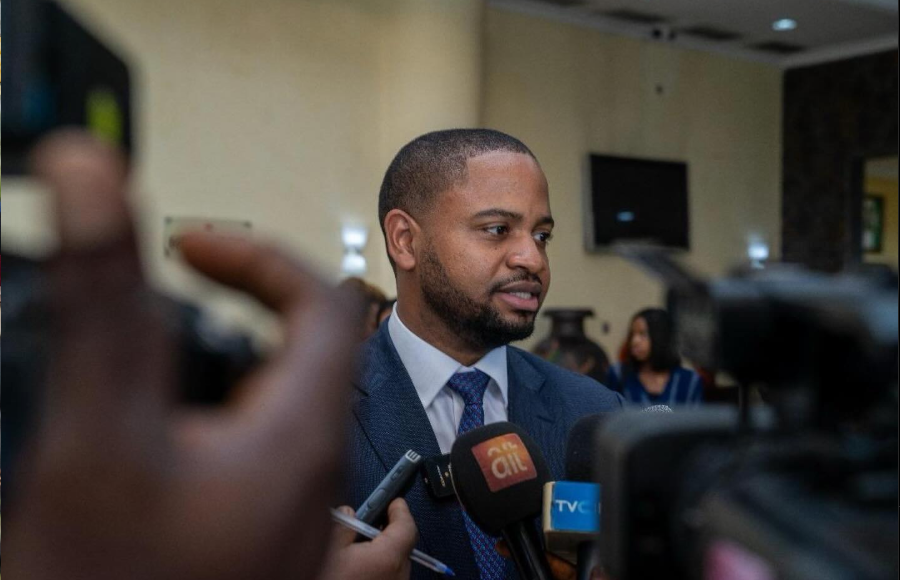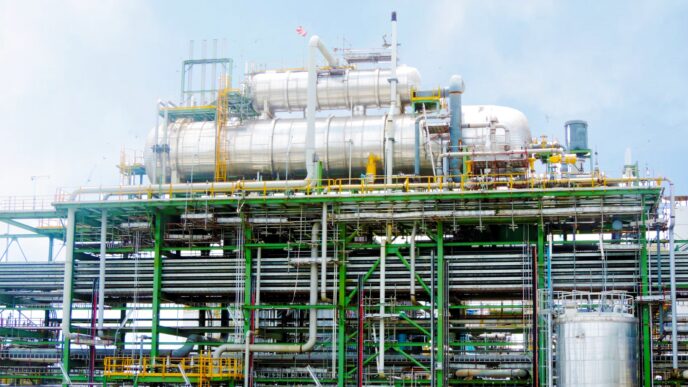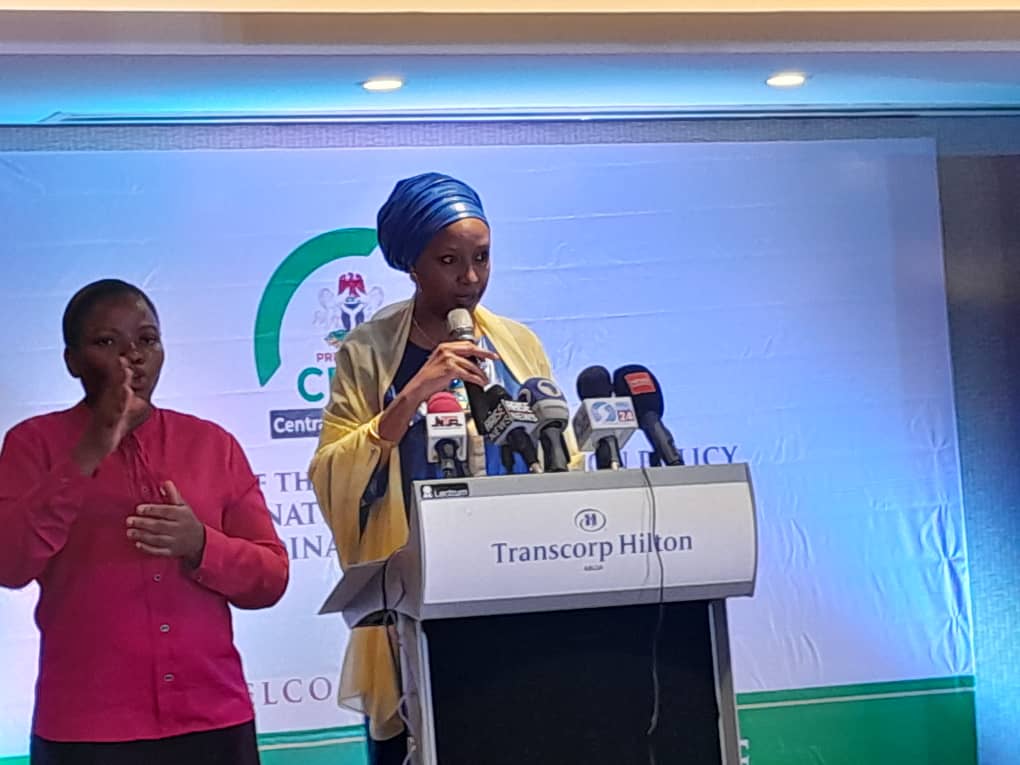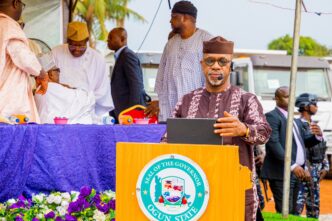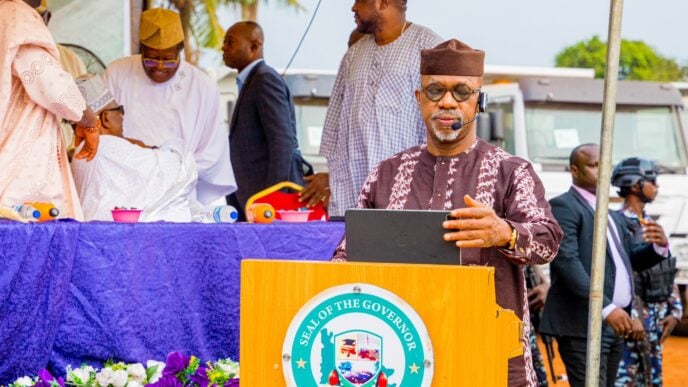Mark Okoye, managing director of the South East Development Commission (SEDC)
BY CHINYERE AKATAOBI
For more than five decades, the south-east of Nigeria has carried the weight of an unfulfilled promise—one that many feared would remain an unspoken footnote in the nation’s history. The scars of the Nigerian Civil War left more than just a physical imprint on the region; they underscored a lingering economic disparity that successive administrations either failed or hesitated to address in a meaningful way. But on February 12, 2025, history took a decisive turn. President Bola Ahmed Tinubu signed the South-East Development Commission (SEDC) Bill into law, appointing Mark Okoye II as the pioneer managing director and chief executive officer.
For the people of the south-east, this was not just another policy decision—it was the long-awaited fulfilment of a promise made in the aftermath of the war. It acknowledged that rebuilding is not just about repairing roads or erecting structures but about restoring faith in governance, equity, and economic justice. Nigeria’s economic landscape is one of paradoxes: a nation rich in human and natural resources yet struggling to translate potential into widespread prosperity. This is most evident in the south-east, a region historically known for its entrepreneurial drive but has faced systemic neglect in infrastructure, industrial investment, and security. Establishing the SEDC signals a shift, a deliberate attempt to bridge these gaps by fostering regional economic transformation and the man entrusted with this mission, Mark Okoye II, is no stranger to high-stakes economic development.
At just 38, his career already reads like that of a seasoned technocrat. From serving as managing director/CEO of the Anambra State Investment Promotion and Protection Agency (ANSIPPA) to his tenure as commissioner for economic planning, budget, and development partners, Okoye has consistently demonstrated a sharp ability to attract investment and drive economic policies that translate into real growth. His appointment, therefore, is not just about placing a young leader at the helm; it is about putting a results-oriented strategist in charge of a bold experiment aimed at regional transformation, a behemoth task well understood by the man saddled with the responsibility of leading the charge himself.
Advertisement
At his inauguration, Okoye clearly articulated the gravity of the task ahead: “We begin the critical task of executing our mandate to oversee the reconstruction and rehabilitation of critical infrastructure damaged by the Nigerian Civil War and tackling the broader developmental challenges facing the region”.
His vision extends far beyond repairing war-time damage; to positioning the south-east as a $200 billion regional economy by 2035, contributing significantly to President Tinubu’s ambitious $1 trillion GDP target. The strategy is rooted in a multi-stakeholder approach. State governments, private sector investors, academia, traditional and religious leaders, and civil society organisations are all expected to play pivotal roles. Unlike previous interventionist commissions that often struggled with bureaucratic inertia, the SEDC is structured to prioritise execution over rhetoric.
Already, the commission has outlined key focus areas, drawing inspiration from the late Dr. Michael Okpara, whose visionary economic policies laid the foundation for the region’s industrial and agricultural strength. Okoye hopes to build on his legacy, in collaboration with state governments, and align with the Renewed Hope Agenda of H.E. President Bola Ahmed Tinubu to prioritise:
Advertisement
1. Security & investment climate (Strengthening peace and stability to attract investment);
2. Master planning & infrastructure (Developing new masterplans to guide the major infrastructure projects);
3. Agriculture & industrialisation (Enhancing value chains, boosting food security, and revamping industrial clusters & supporting current projects being developed by the State government);
4. Technology & innovation (Empowering our youths with digital skills and fostering tech-driven entrepreneurship); and,
5. Human capital development (Supporting tertiary education, healthcare institutions, and vocational training).
Okoye has clarified that his leadership will be defined by transparency, measurable action, and public participation. Unlike past commissions that operated behind layers of bureaucracy, the SEDC is launching an interactive digital platform that will allow citizens to track projects, give feedback, and hold leadership accountable. The South-East’s business community is already watching closely.
Many remember the economic vibrancy of cities like Onitsha, Aba, and Enugu in their heyday—hubs of commerce and industry that once rivalled their African counterparts. The hope is that with strategic investment and clear execution, the region can reclaim that legacy. One businessman in Nnewi, a city known for its manufacturing prowess, put it bluntly: “We don’t need another commission that just holds meetings and releases reports. We need roads. We need power. We need policies that allow businesses to thrive.”
This pragmatic expectation is precisely why the SEDC’s performance will be closely scrutinised. Okoye understands the weight of responsibility on his shoulders. He is not just leading another government agency; he is steering a historic initiative that carries the hopes of millions who have waited half a century for meaningful change. The success or failure of the SEDC will not be determined by speeches or press releases. It will be judged by tangible results—the roads that are fixed, the industries that emerge, the investors who return, and the lives that are transformed.
Advertisement
As the commission rolls out its first set of projects, the question is no longer whether the South East will get its long-overdue development—it is how quickly and effectively the SEDC can deliver on its ambitious goals. With an experienced leader at the helm, a clear strategic roadmap, and a government that has finally put action behind its words, the South East stands at the threshold of a new era. This time, it is an era of execution, not just expectation.
Chinyere Akataobi is a senior communications associate at StateCraft Inc
Views expressed by contributors are strictly personal and not of TheCable.
